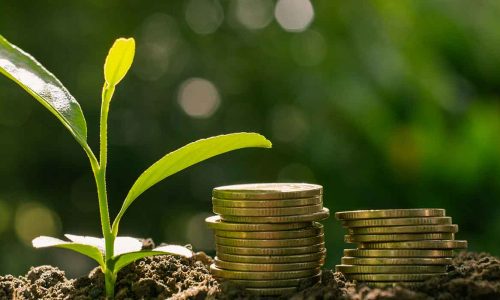Is degrowth the path to prosperity?
Degrowth has been central to the public debate for several years now, with some people reacting enthusiastically. Others reject the whole idea: degrowth, they say, opens the door to massive economic recession, decline and impoverishment. But what are we talking about exactly? And – if we can avoid taking sides – wouldn’t degrowth at least be an opportunity we should grab to help us understand the world around us in a new light?
Growth : What is it?
In three words: a mythological indicator
Before looking at degrowth, we should clearly identify what lies hidden behind the notion of economic growth. The dictionary defines the concept as “the sustained increase, over a long period of time, of the production of goods and services in a country”, adding that it has been measured for several decades using the GDP growth rate. And yet, this indicator was developed for a specific purpose at the end of the 1929 crisis: it was designed to give a simplified representation of the economic situation as a way of assessing the impact of recovery measures. GDP is derived from a very basic calculation, and only works with the “+” key. In fact, it simply totals up the added values of everything that is sold, irrespective of whether the products and services concerned are desirable or not.
What’s more, GDP does not factor in certain types of wealth, starting with the riches of nature and non-monetized human activities. Simon Kuznets, the man who invented GDP, was aware of these limitations: he was the first to say that GDP could not be used to measure the wellbeing and success of a country in overall terms, and that it should not serve as a guide for political decisions…
Unfortunately, no one listened to Kuznets, and now – 90 years after it was created – GDP has become an obsession for almost all governments. Growth nowadays has become enshrined in myth, synonymous with progress, prosperity, development, protection, innovation, power and happiness.
The idea of growth has taken hold on our collective imagination. It is so powerful that, instead of considering the consequences our economic model has on the planet, very many stakeholders continue to worry about the impact of global warming on growth.

Ralentir ou périr : l’économie de la décroissance,
By Timothée Parrique, éditions du Seuil, 2022
Is growth always a good thing?
In three words: Far from it!
Do people live better, and is society better, in countries with the highest GDP per capita, which is the result of stronger growth in the past? Not always. It is true that there is a positive correlation in the poorest countries between GDP growth and a wide range of variables: life expectancy, access to education, poverty, income inequalities, gender inequalities, insecurity, etc. Yet this correlation disappears above a certain threshold, which France crossed in the 1970s. It follows that “human progress” and “social progress” depend on other factors and other policies besides economic wealth and growth.
So, contrary to widespread belief, growth is not synonymous with prosperity, a concept where the wealth and the wellbeing of a society exist side-by-side.
Moreover, growth has many side effects. Its impact on ecosystems is now widely known: the ever-expanding economy is damaging the climate and depleting the planet’s resources, meaning we’re coming perilously close to the point of no return. But growth also leaves its imprint on sociosystems: similarly to fossil fuels and raw materials, human time is a finite resource that is not infinitely expandable. Beyond a certain point, the economic sphere develops to the detriment of non-market activities (the family, networks of friends, certain leisure activities, voluntary work, etc.) that play a key role in wellbeing. From this perspective, growth can even be a danger to prosperity.
© Copyright Business Digest - All rights reserved




